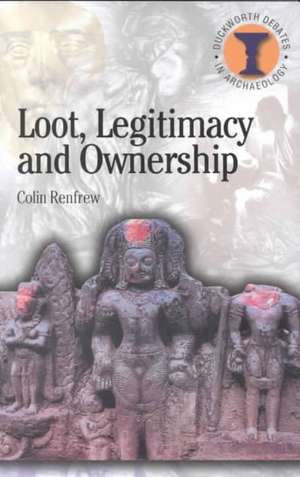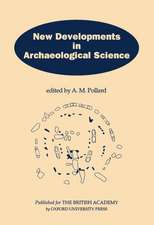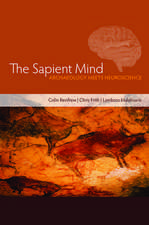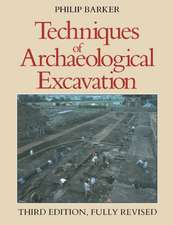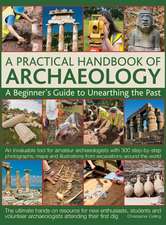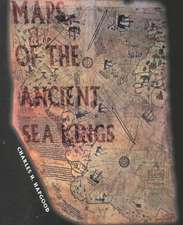Loot, Legitimacy and Ownership: The Ethical Crisis in Archaeology: Debates in Archaeology
Autor Colin Renfrewen Limba Engleză Paperback – 19 oct 2000
Din seria Debates in Archaeology
- 24%
 Preț: 170.07 lei
Preț: 170.07 lei - 24%
 Preț: 170.50 lei
Preț: 170.50 lei - 28%
 Preț: 466.81 lei
Preț: 466.81 lei - 14%
 Preț: 164.50 lei
Preț: 164.50 lei - 17%
 Preț: 171.76 lei
Preț: 171.76 lei - 17%
 Preț: 169.62 lei
Preț: 169.62 lei - 13%
 Preț: 248.61 lei
Preț: 248.61 lei - 18%
 Preț: 169.08 lei
Preț: 169.08 lei - 14%
 Preț: 163.42 lei
Preț: 163.42 lei - 30%
 Preț: 566.67 lei
Preț: 566.67 lei - 22%
 Preț: 594.35 lei
Preț: 594.35 lei - 24%
 Preț: 169.27 lei
Preț: 169.27 lei - 14%
 Preț: 169.27 lei
Preț: 169.27 lei - 24%
 Preț: 169.62 lei
Preț: 169.62 lei - 14%
 Preț: 170.69 lei
Preț: 170.69 lei - 13%
 Preț: 247.98 lei
Preț: 247.98 lei - 24%
 Preț: 168.74 lei
Preț: 168.74 lei - 24%
 Preț: 169.62 lei
Preț: 169.62 lei - 14%
 Preț: 169.79 lei
Preț: 169.79 lei - 14%
 Preț: 247.22 lei
Preț: 247.22 lei - 18%
 Preț: 253.64 lei
Preț: 253.64 lei - 18%
 Preț: 169.44 lei
Preț: 169.44 lei - 14%
 Preț: 178.22 lei
Preț: 178.22 lei - 13%
 Preț: 247.98 lei
Preț: 247.98 lei - 17%
 Preț: 170.32 lei
Preț: 170.32 lei - 17%
 Preț: 169.71 lei
Preț: 169.71 lei - 13%
 Preț: 149.87 lei
Preț: 149.87 lei - 14%
 Preț: 162.79 lei
Preț: 162.79 lei - 24%
 Preț: 169.71 lei
Preț: 169.71 lei - 14%
 Preț: 169.88 lei
Preț: 169.88 lei - 24%
 Preț: 170.07 lei
Preț: 170.07 lei - 24%
 Preț: 170.07 lei
Preț: 170.07 lei -
 Preț: 169.62 lei
Preț: 169.62 lei - 14%
 Preț: 169.62 lei
Preț: 169.62 lei - 14%
 Preț: 169.88 lei
Preț: 169.88 lei - 13%
 Preț: 149.87 lei
Preț: 149.87 lei - 30%
 Preț: 567.99 lei
Preț: 567.99 lei - 14%
 Preț: 170.32 lei
Preț: 170.32 lei - 23%
 Preț: 248.17 lei
Preț: 248.17 lei - 17%
 Preț: 169.71 lei
Preț: 169.71 lei - 30%
 Preț: 537.55 lei
Preț: 537.55 lei - 18%
 Preț: 169.27 lei
Preț: 169.27 lei - 13%
 Preț: 247.70 lei
Preț: 247.70 lei
Preț: 170.07 lei
Preț vechi: 205.81 lei
-17% Nou
Puncte Express: 255
Preț estimativ în valută:
32.55€ • 33.85$ • 27.24£
32.55€ • 33.85$ • 27.24£
Carte tipărită la comandă
Livrare economică 15-29 martie
Preluare comenzi: 021 569.72.76
Specificații
ISBN-13: 9780715630341
ISBN-10: 0715630342
Pagini: 160
Ilustrații: 1
Dimensiuni: 136 x 216 x 13 mm
Greutate: 0.23 kg
Editura: Bloomsbury Publishing
Colecția Bristol Classical Press
Seria Debates in Archaeology
Locul publicării:London, United Kingdom
ISBN-10: 0715630342
Pagini: 160
Ilustrații: 1
Dimensiuni: 136 x 216 x 13 mm
Greutate: 0.23 kg
Editura: Bloomsbury Publishing
Colecția Bristol Classical Press
Seria Debates in Archaeology
Locul publicării:London, United Kingdom
Caracteristici
Argues that looting is destroying the context in which archaeological findings can be understood, as well as sabotaging the most valuable information.
Notă biografică
Colin Renfrew was formerly Disney Professor of Archaeology and Director of the McDonald Institute for Archaeology, University of cambridge, UK, where he is now Senior Fellow. His publications include Figuring It Out: Parallel Visions of Artists and Archaeologists (2003); Excavations at Phylakopi in Melos, 1974-77, and Prehistory: the Making of the Human Mind (both 2007).
Cuprins
List of illustrations Introduction 1. The destruction of the past 2. Unprovenanced antiquities: the role of the private collector and dealer3. Causes for concern: illegitimate acquisition and reluctant restitution 4. A universal problem: Asia, Africa, America 5. Ineffective safeguards and evolving moralities 6. Antiquities in England: the local view 7. Envoi: the past has an uncertain future Appendices: Conventions, Resolutions, Documentsi. The UNESCO Convention (1970)ii. The Unidroit Convention (1995) iii. The Philadelphia Declaration (1970) iv. International Council of Museums, Code of Professional Ethics v. Policy Statement by the Trustees of the British Museum (1998) vi. Resolution of the Council of the British Academy (1998) vii. Writ of Summons in the Sevso Case, London (1991) viii. The Treasure Act for England and Wales (1996) ix. The European Council on the export of cultural goods (1992) x. The Cambridge Resolution (1999)Bibliography Index
Descriere
Archaeology is being undermined by clandestine and unpublished digging of archaeological sites for gain. Unless a solution is found to this ethical crisis, our record of the past will be vastly diminished. This book attempts to lay bare the misunderstanding and hypocrisy that underlies that crisis.
